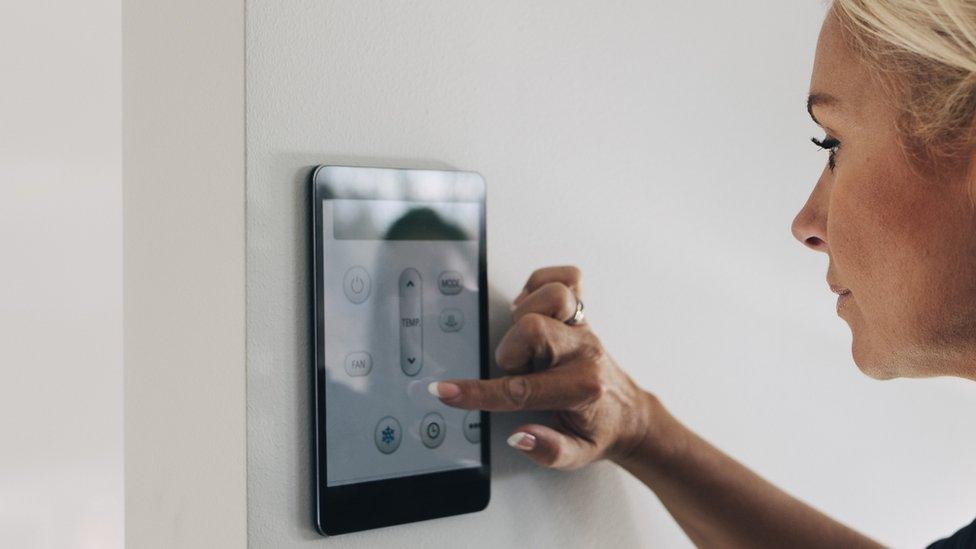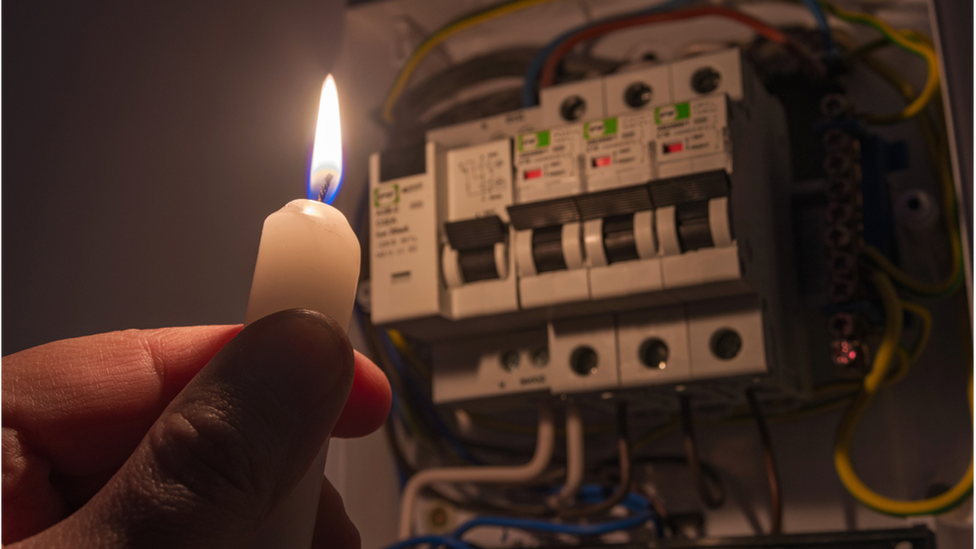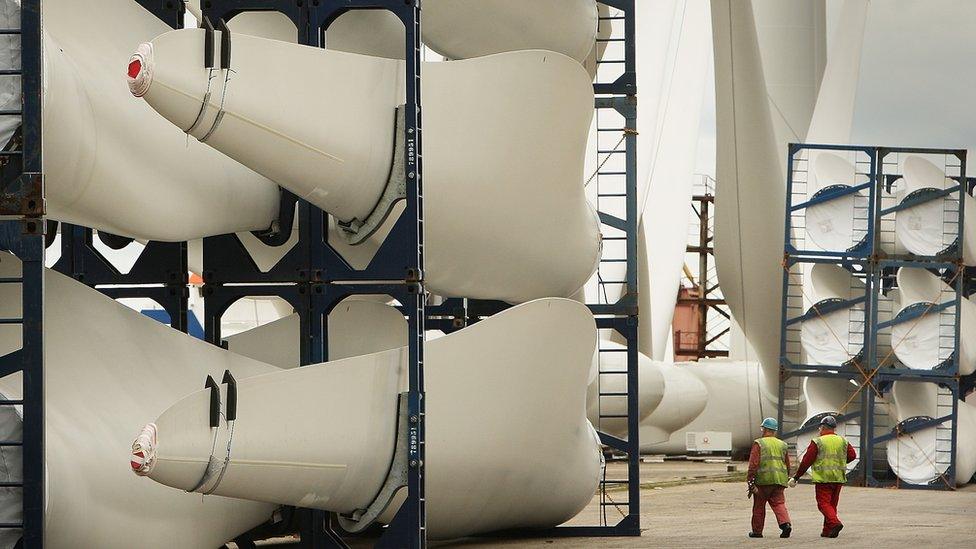Households could be paid to turn down heating
- Published
- comments

Households in England, Wales and Scotland could be paid to turn down their heating this winter under plans to prevent gas supply issues.
National Gas, which runs the UK's main gas network, is mulling the idea after homes got discounts for using less electricity under a separate scheme.
It told the BBC there was "no threat to domestic supplies" but it was ready to take action if they became strained.
Meanwhile, the electricity discount scheme is set to run again.
National Grid's Electricity Systems Operator (ESO), which balances supply and demand on the network, said it would be open to more people and businesses this winter, although the chances of blackouts were lower than last year.
Under National Gas's plans, which are only provisional at this stage, households could volunteer to use less gas at peak times such as the early evening and potentially receive a discount on their bills.
National Gas said it was working with the government and the energy regulator to understand how it might work, external.
"We are in the early stages of exploring whether a small-scale trial could look at the feasibility of the public turning their gas down slightly during times of reduced supply - voluntarily and in return for payment," a spokeswoman said.
"We are in a better position this year in terms of gas supplies, but it's important we look at a range of long-term options to bring down costs for consumers and balance supply and demand."
The Ukraine war disrupted European gas supplies last year, driving up prices and raising fears of power cuts as gas-fired power stations came under pressure.
National Gas boss John Butterworth told the BBC that Europe was in a "good place" this year in term of supplies, as it had filled up its strategic storage ahead of time.
But he said there was still a scenario in which exceptionally cold weather across the continent could leave the UK struggling to import the gas it needs.
The UK imports about half of its gas from Norway.

The National Grid ran a similar scheme last year to prevent electricity supply problems
Electricity supply concerns last year prompted Britain to keep coal-fired power stations on standby and launch a scheme that paid customers who reduced their electricity use at peak times.
Many suppliers adopted the Demand Flexibility Service, offering their customers discounts or cash payments for switching off high-energy appliances on days when supplies were tight.
On Thursday, National Grid's ESO said the scheme was less likely to be needed this winter as there had been a "big uptick" in overall capacity and the "stress events" from last year had faded.
However, it said the service would run again and could operate on a much larger scale this time.
Many businesses, including food wholesalers and water companies, had already enquired about taking part this year after seeing the scheme work in their own homes, it said.
This winter the scheme could provide up to a gigawatt of demand flexibility if needed, it said.
Last winter 3,300 megawatt hours (MWh) were saved across 22 events, "enough to power nearly 10 million homes", the ESO said.
Payments were likely to be at a similar level to last year's £3,000 per MWh, it said, but how much would be passed on to customers and in what form - whether as cash payments, vouchers or even in the form of a prize lottery - was at suppliers' discretion.
National Grid ESO and National Gas manage the electricity and gas networks respectively for England, Scotland and Wales. Northern Ireland has its own operators.

Here are some energy saving ideas from environmental scientist Angela Terry, who set up One Home, a social enterprise that shares green, money-saving tips:
Get a water-efficient shower head free of charge from your water company and use showers rather than baths
Consider loft insulation, which she says costs around £680 for a typical semi-detached home and could save £285 a year on gas bills
Hang out washing instead of using a tumble dryer, and walk rather than drive when possible
Use windy days to feel where draughts are in the house. Wetting the back of your hand helps to locate them, then use insulation or draught-proofing tape
Where available, press the smaller button to use less water to flush the toilet

Related topics
- Published15 June 2023

- Published1 December 2023

- Published12 March 2024

- Published3 August 2023

- Published11 May 2023
